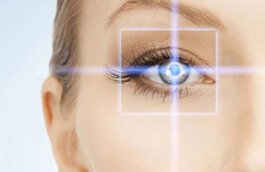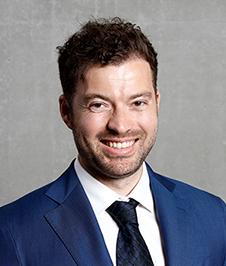Display Terminal syndrome
In daily life people’s work and leisure are increasingly dependent on electronic devices, including computers, mobile phones, TV and internet games. Students have “online courses” and most office workers work also at home, and the time spent staring at the screen increased greatly every day during the epidemic.
Visual display terminal (visual display terminal, VDT), refers to a series of symptoms caused by long-term close operation of optical display terminals. Related studies have shown that the probability of eye symptoms are the most common. Secondly, neck, shoulders and arm are affected, as well as the impact on neurobehavioral function.

Influence of VDT on eyes:
Dry eyes: if you spend a lot of time working or playing with the computer, especially when watching TV shows or playing games, you are very focused, so you are likely to unwittingly forget to blink. Under normal circumstances, people blink about 20 times a minute. If you reduce the number of blinks, tears, the best lubricant for the eyes, will not be evenly distributed on the surface of the eyes, and the evaporation of tears will increase. Symptoms such as dry eyes and foreign body sensation may occur. If in severe cases, may keratitis or conjunctivitis. At the same time, due to the uneven tear film on the eye surface, it will also lead to the decline of visual quality, wavefront aberration and other symptoms.
Eyestrain: The American Optometry Association calls this eye syndrome CVS (computer vision syndrome). Ophthalmologists often hear patients say that their vision is unstable or temporarily blurred, and they may find it difficult to open their eyes, sore eyes or even headaches.
Vision worse: close working with computer more than 2 hours will slightly decrease vision, but after half an hour of rest, will feel better, this stage of fatigue will not pose a threat to eye health. However, to a certain extent, it will lead to damage the vision. Especially teenagers who often use computers have a higher incidence of myopia.
Influence of VDT on shoulder and neck:
Computer users with VDT often adopt uncomfortable sitting posture in order to face the screen comfortably. Keeping these distorted posture for a long time will neck and shoulder pain, and may also be accompanied by symptoms of cervical compression, such as headache, dizziness, loss of appetite, memory loss, neck, shoulder, waist and back pain, joint dysfunction and other discomfort.
Influence of VDT on psychological function.
If always working in a limited space and less communication with people in real life, the impact of VDT on patients’ psychological status and social life will increase year by year. At the same time, VDT will also lead to the prolongation of visual and auditory reaction time and action reaction time, resulting in a decline in interest in work, leading to depression, phobia, depression and other obvious emotional disorders.
VDT workers tend to be introverted, emotionally unstable and more likely to suffer from neurosis, especially female patients. With the extension of weekly VDT work time, patients may have personality tendencies such as pessimism, mood swings, conservatism and so on.
Prevention of visual display terminal symptom:
1) Correct ametropia: correct treatment of myopia, hyperopia, astigmatism and presbyopia.
2) Pay attention to the time of working with computer: take a 10-minute break every 40 minutes. It is suggested that you should look out view or just take a rest from computer.
3) Maintain the correct posture and gaze distance when facing electronic products.
4) Maintain blinking frequency or replenish artificial tears. Recommend take the artificial tears without preservatives.
5) Suitable light. The appropriate level of ambient lighting should be determined according to the nature light.
6) Avoid stay in a bad air atmosphere. For example: smoke, paint for decoration, formaldehyde, and etc.
7) Do shoulder and neck aerobics, strengthen exercise and move joints.
8) When it is not necessary to use electronic products, talk with family and friends or engage in outdoor activities.
I wish you at home during the epidemic; keep health, and a good mood.
About EuroEyes
The EuroEyes Clinic Group is a globally successful company that was founded 26 years ago in Hamburg and has its headquarters there until today. In addition to locations throughout Germany, EuroEyes is also represented in China and Denmark. The company offers patients the full range of refractive surgery for the correction of visual disorders. Using state-of-the-art eye laser and lens surgery procedures, EuroEyes treats more than 25,000 patients each year with nearsightedness, farsightedness, astigmatism, presbyopia or cataract. The treatment enables the start of a life free of glasses and contact lenses without any impairment of visual quality.
Are you also interested in laser eye treatment at EuroEyes or would you like to find out more about us? Then please contact our service or fill out our contact form. We look forward to you!
+49 40 348 09 29 0 – service center in Germany (English, German and Chinese)
Monday to Friday: 08:00 – 20:00
Saturday: 09:00 – 14:00


















Join our Newsletter